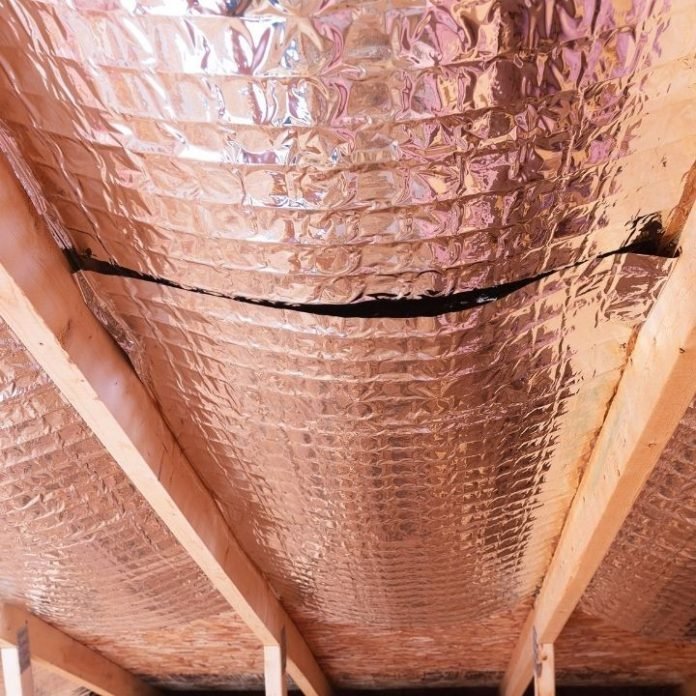Last Updated on July 13, 2024 by Asfa Rasheed
Is it necessary to insulate your attic roof? insulation chesterfield is an excellent way to improve your home’s energy efficiency. Quality insulation will reduce the cost of heating and cooling your home. Estimates from the Department of Energy range from 10% to 50% savings, depending on several factors. Attic insulation, on the other hand, isn’t merely for heating. In addition to preventing ice dams and humidity, proper attic insulation can help maintain your roof in better shape.
Table of Contents
Attic insulation
You may be required by your local building codes to have a particular level of insulation. Installing even better insulation, on the other hand, will benefit both you and your roof. Over-insulation, on the other hand, might cause your shingles to heat up and limit their lifespan. This is especially true if your roof isn’t ventilated properly. It’s crucial to strike a balance between the two requirements, one for insulation and the other for ventilation.
Regardless of the type of insulation used, almost all building regulations and all asphalt roofing manufacturers demand sufficient ventilation of a roofing system. Some forms will affect not only the life of your roof, but also the warranty coverage provided by your roofing manufacturer. You should read and understand your roofing warranty, as well as the restrictions it imposes on air flow and roof insulation.
The Benefits of Attic Insulation for You and Your Roof
Here are some ways that effective attic insulation might help your roof:
If you don’t have insulation in your attic, heat from your home escapes through your ceiling and into your attic, causing ice dams. As a result, your shingles are at a greater temperature during the winter. Warmer shingles may melt snow that has accumulated on top of them. As the temperature drops, or the meltwater makes its way to the colder eaves, it refreezes as ice. This is referred to as an ice dam. Ice dams can reduce the performance of your roof and shorten the life of your shingles. They increase the chance of leaks and, if they extend into your gutters, they can harm them. The easiest method to avoid ice dam damage is to insulate properly. Install ice and water protection, and make sure your attic is adequately ventilated.
Gutter iced over
Interstitial condensation happens between the layers of your roof and is prevented by this product. It happens when hot and cold air collide, resulting in condensation or water droplets. These drops can accumulate and damage the materials on your roof. Appropriate insulation, on the other hand, restricts heat transfer through the roof and so reduces the possibility of condensation between its layers.
- Extends the life of the shingle: Your shingles should not be exposed to ice dams and will see less temperature fluctuation with sufficient attic insulation. This allows them to perform for longer periods of time.
- Protects gutters: Without insulation, your roof deck is subjected to more dramatic variations and may expand and compress more quickly. This expansion and contraction might cause your gutters to shift and your gutter fasteners to loosen over time.
- Aside from its impact on your roof, adequate attic insulation can also improve the comfort of your home and provide other benefits, such as: More heat stays in your home during the winter and less radiates down from your attic during the summer when you have superior attic insulation. This heat resistance makes it less expensive to heat or cool your home to the temperature you like.
- Longer appliance life: When furnaces, air conditioners, and other HVAC systems don’t have to work as hard, they can last longer. Furnaces that run continuously to keep up with heat loss through your attic, on the other hand, are more prone to develop difficulties and have a shorter lifespan.
- More consistent temperatures: Attic insulation keeps conditioned air in the house rather than allowing it to escape through the ceilings, resulting in more consistent temperatures in your rooms from ceiling to floor. This can help you feel more at ease in your home, especially if your ceilings are cathedral.
- Attic insulation can also help to lessen the amount of outside noise that enters your home. If you live near busy highways, construction, or other sources of noise, this extra benefit can be beneficial. However, if soundproofing is your major concern, wall insulation is usually a superior choice.
R-values vary depending on the kind of insulation and the specific insulation product. The R-value of a material is a measurement of how well it can block heat from passing through it per inch. Better insulators have higher R-values. Although you may improve the performance of any insulation simply by installing more of it, the Department of Energy advises that your attic insulation has an R-30 rating. Those who live in really cold climates may require even higher R-values.
The best R-value per inch is commonly found in rigid foam boards, such as polyisocyanurate. These materials, on the other hand, are frequently used in business applications rather than in houses. Some rigid foam boards, can be used in residential applications where thinness and quality are key. Attic hatches, for example, have limited room for insulation but are frequently large sources of heat loss, making them ideal candidates for rigid foam board. Cathedral ceilings, on the other hand, may not have enough room for other types of insulation.
Apart from this, if you are interested to know more about Attic Insulation for your Residence then visit our Home Improvement category.



























